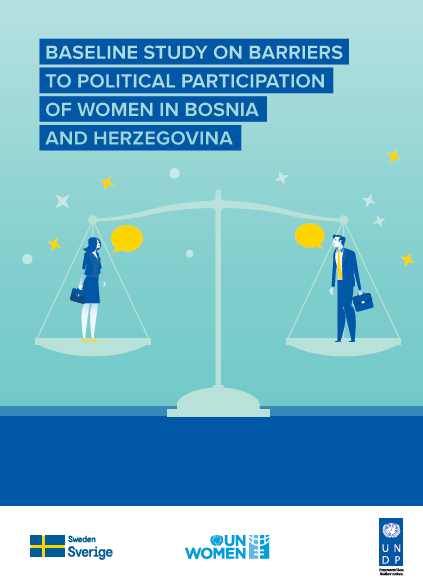
Baseline study on barriers to political participation of women in Bosnia and Herzegovina

In Bosnia and Herzegovina, equal representation of women in politics is one of the central issues when it comes to gender equality. Although it is guaranteed by the law on gender equality, which includes an obligation for action if representation of women and men drops below 40 percent, underrepresentation of women in elected office in Bosnia and Herzegovina has not changed significantly after the 2018 general elections. This is despite the gender quota prescribed by the election law in Bosnia and Herzegovina and a number of actions targeting capacity building and promotion of women in politics. This baseline study was produced as part of the "Women in Elections in Bosnia and Herzegovina" project, financed by the Government of Sweden and implemented by UNDP and UN Women.
Through its five sections, this study:
- Outlines international and domestic legal standards regulating the issues of equal participation of women and men,
- Outlines the activities of key contextual enablers,
- Assesses to which extent political parties can be considered as gate keepers for participation of women in politics,
- Explores the entry points for promoting participation of women in political and public life,
- Provides a deeper analysis of media and the presentation of women in politics.
This study confirms the existence of structural barriers to political participation of women in Bosnia and Herzegovina. It also concludes that investing in a bottom-up approach, combining it with a top-down approach and harvesting on the existing results can contribute to equal participation of women in Bosnia and Herzegovina.